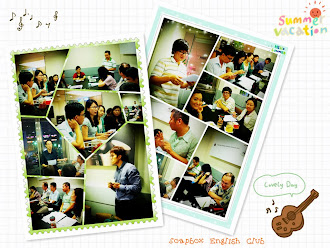新埔捷運站1號出口 旁邊7-11巷子進入20公尺 看到夏朵美髮左轉

一袋鈔票--誠實度測試
What do you do if you find a bag of cash?
What would you do if you were renovating your newly purchased home, and found a bag containing $100,000 in $20 bills hidden above a ceiling panel in the bathroom?
Do you keep it and say nothing, turn it over to the police, or quietly sell the house and take the cash with you?
That was the problem faced last month by a couple in Trois-Rivieres, Quebec.
They purchased the house at 2620 Andr St. in June from a bank that had repossessed it when the mortgage went into default.
The former owner of the house was Marc-Andr Hinse, the alleged head of the Hells Angels motorcycle gang in Trois-Rivieres. Local police have been looking for Hinse since May 2004, when they carried out raids on members of the biker gang.
At the time, the police executed a search warrant on the house, but missed the plastic bag containing the money. After the police were finished, the bank took over and eventually sold the place.
After I heard about the discovery in Trois-Rivieres, I began to wonder who was entitled to the bathroom bounty. I hunted down a copy of Principles of Property Law, a popular text for first-year law students written by professor Bruce Ziff of the University of Alberta.
An entire chapter about lost objects begins with the comment, "The law of finding is not an area of pressing practical concern."
The statement, of course, is quite true unless you happen to find a bag full of money hidden in your house, and you don't know or don't want to know who it belongs to.
That's what happened to a Toronto lawyer back in 1988 while his contractors were renovating an 1880s Victorian house he had purchased. When nearly $50,000 came raining down on the contractors from the ceiling, everybody wanted the money the owner, the daughter of the former owner, and of course, the workers.
Sadly, the outcome remains a mystery, as the parties signed a non-disclosure agreement when the case was settled.
Although Quebec laws may differ, the law in Ontario is "finders keepers."
In other words, the finder of an item gets good title to it against the whole world except for the rightful owner. But the rule gets muddied when the article has been abandoned, or is the proceeds of crime.
If there is proof that the bathroom bounty came from criminal activity, it can be seized.
Was the Trois-Rivieres money abandoned by whoever put it in the ceiling? Can anyone prove it is the proceeds of crime?
What is the risk that an imposing gentleman in leather attire and driving a large two-wheeled vehicle would knock on the door one day and politely request the return of his missing property?
Meantime, the $100,000 has been turned over to the local police and its fate is awaiting a determination by the Quebec court.
The judge hearing the case will no doubt recall the 1969 British case of Moffat v. Kazana.
In that case, Kazana purchased a house in 1961 and three years later workers dislodged a biscuit tin containing almost 2,000 from the chimney. Kazana turned the money over to the police, who eventually gave it back to him.
Then the former owners, a couple named Russell, sued Kazana claiming ownership of the loot.
The court awarded the money and the tin to the Russells who were the "true owners," concluding that they simply forgot about it but never abandoned the intent to own it.
Another interesting finder's case occurred in 1949 when a 12-year old boy playing with his friends crawled under a pool-room in Fort Frances and discovered about $1,500 in a tin resting on the support beams of the building. At the time, $1,500 was a huge sum of money.
The police seized the cash but the Ontario High Court eventually awarded it to the youngster when no one came forward to claim it.
If you owned 2620 Andr St. in Trois-Rivieres, and discovered $100,000 in the ceiling of your bathroom, what would you do with the money?
I'd love to hear from you by fax or email. I'll report the results of the case when and more importantly, if they become available.
不要再 死硬派!
How to Stop Being Stubborn
Tasha Rube, LMSW
Have the words headstrong, obstinate and unwilling to change been used to describe you? Standing your ground is important, but so are compromise, cooperation, and collaboration. Your stubbornness may be the reason you aren’t being invited to events, and you may be losing friendships and even job prospects. If you put your foot down and refuse to budge on anything, then it is time for change. Taking charge of your stubbornness involves using practical techniques, developing negotiation skills and analyzing the reasons for your stubbornness.
Listen to the other side of the story. You may agree with some of the things you hear, and disagree with others. This gives you a chance to hear things you may not have heard before, and also increases your chances to reach an agreement. When both parties listen to each other, it makes things easier for everyone.[1]
If you are filling your head with all the reasons to say “no” as the person is talking, you are not actively listening. If it is difficult for you to listen, say to the other person, “Okay, I’m listening to what you have to say.” This will force you to pause and focus on the person talking.
Maintain good eye contact. This will help you stay focused and also will convey your interest in hearing what the other person has to say.
Do not interrupt the person talking. Instead, wait until he is done to address the matter. Repeat back in similar wording what you heard him say. Each time you do this it builds your credibility as an active listener.[
If the person talking is upset, happy, or passionate about what he is saying you can reply, “It sounds like you are really excited about this opportunity. I can see why this is so important to you.” People like to be heard and listened to. When you correctly repeat back to people what you heard, they know you have been listening.
Remind yourself that you are not always right. While listening to someone talk, you may think everything he says is wrong because you know "the right way." There is a distinction between facts and opinions. Your opinion is not the only one that matters, nor is all your knowledge necessarily correct. You have to accept that you learn something new every day, even if it overwrites something you thought you already knew.
You are entitled to have an opinion, but you cannot expect others to always agree with you. Repeating your opinion louder, or more often, or with judgmental slurs attached, will not convince anyone to agree with you. Everyone is entitled to their opinion.
No one likes a know-it-all. If maintaining relationships with family, friends and business is important, you must consider your likability.
Keep an open mind by reserving judgement. Enter any discussion and situation with an open, neutral mindset, without prejudice, or judgement. Approach with the attitude that you are willing to hear what someone has to say so you can make a fair decision, rather than a rash decision. Considering everyone’s input prevents closing off the possibility for a positive outcome.
Prevent yourself from jumping to a negative conclusion by using visualization techniques.[4] For example, close your eyes and envision a box filled with all the negative things you believe about the person or the event you are supposed to attend. Picture yourself closing the box and putting a lock on it and setting it to the side. Open your eyes and take a step forward symbolically moving away from your stubbornness. This should help you start the conversation with an open mind.
Focus on the positive feeling that results from a good outcome and let that motivate you through the situation.
Be humble. Don't always assign people less value than yourself. Think about everyone as being equal. It is okay to be confident and have healthy self-esteem, but over doing it can make you appear stubborn and closed-minded, not to mention snobby, self-centered and even mean.
To be humble you need to approach every situation from the perspective that you are grateful for what you have. Don't boast about your accomplishments. Be appreciative for what you have and for the people in your life. If you never lose sight of this and uphold a high level of care for others, you will see your stubbornness decrease.
Humility requires you to hold a modest opinion of yourself rather than an inflated one. For example, if you hold an advanced college degree, don’t think less of someone who doesn’t have one. There are all sorts of reasons why people don’t go to college, and many of these people might be more successful than you.
Build rapport to lessen tension. Don’t use stubbornness to get what you want, instead learn the essentials of negotiation so you can compromise, cooperate and collaborate. You will get what you want in a more effective and professional manner. Building rapport is the first step. People tend to let down their guard with those who share common interests. If you put your stubbornness aside and relate to people, they will respond in a positive way.
Find common ground with people by simply noticing a photograph or piece of art on the wall or on the person’s desk and say, “That is a great shot. It looks like a place I saw in New Mexico. Where did you take that?”
To find common ground with people steer toward conversations about the weather, pets and children. People respond to people they can relate to. Find a subject matter the person can relate to and talk about it. Bringing the










